Double laser fault injection microscope - D-LMS
The D-LMS microscope station for double laser fault injection is a platform allowing to focus and scan independently two laser spots for security evaluation of integrated circuits. Ideal for double spot injection processes, it offers all the spatial and temporal flexibility to analyze circuits through the back side.
Product reference: D-LMS - Double Laser Microscope Station
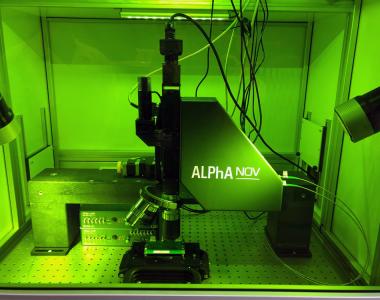
Two independent laser spots in the field of view
The double laser fault injection platform integrates two independent PDM+ laser sources (Pulse-on-Demand Module) focused through the same lens. Each laser spot varying in size from 1 µm to several tens of micrometers can move independently from the others on the whole field of view of the lens.
Thus, the user can program each spot for scans across strategic zones of the integrated circuit while correlating the effects of each PDM+ laser sources.
If each spot can move totally independently across the XY plane of the field of view of the lens, the microscope itself is mounted on high-resolution XYZ stage (50 nm) to scan above the sample.
Independence and temporal agility of laser spots
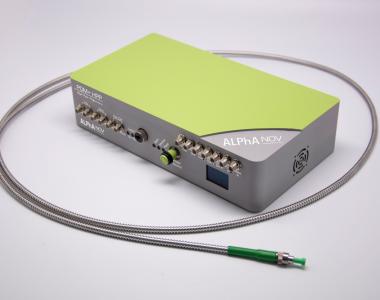
Two PDM+ laser sources are integrated in our double laser fault injection systems microscope systems. Each source can thus generate temporally independent, or synchronized pulses for total temporal control.
These lasers from the PDM range can generate pulses on demand, from 1 ns to continuous wave; from single shot to 250 MHz with a jitter less than 8 ps. This temporal control is required to synchronize the two laser injections with the operation of the circuit.
Different PDM models can be implemented on the D-LMS bench having:
- different wavelengths available for the rear panel, 980 nm and/or 1064 nm,
- different powers (from 2 W to 4 W) depending on the sensitivity of the sample and the thickness of the silicon,
- the new PDM HPP (High Pulse Performance) adapted for extremely short pulses (sub-ns).
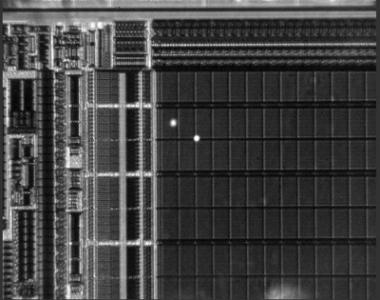
A high-quality infrared vision
ALPhANOV offers a wide range of high-performance lenses focusing on optical quality, high numerical aperture for better resolution and high transmission. The D-LMS bench can integrate up to 4 lenses via a manual turret or 5 lenses via a motorized turret. You can choose the most appropriate magnifications, from the 50X lens offering the smallest spot sizes to the 2.5X lens for a global view of the sample or larger spot sizes for faster scans.
A wide range of lenses
ALPhANOV offers you a whole range of high-performance lenses by prioritising optical quality, a high numerical aperture for better resolution and high transmission. The D-LMS bench can integrate up to 4 lenses via a manual turret or 5 lenses via a motorised turret. You can choose the most appropriate magnifications, from the 50X lens offering the slimmest spot sizes to the 2.5X lens for a global vision of the sample or larger spot sizes for faster scans.
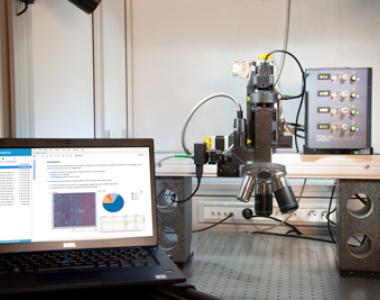
The driving software: strong partnership with eShard
All our benches can now be controlled via eShard's esDynamic software. A powerful platform enables to use notebooks specially developed with python, to integrate your own developments and summarize and analyze your results. The esDynamic platform is also used for side-channel analysis.

A platform for multiple functionalities
Experts in optics and lasers, ALPhANOV customize the laser systems to fit your projects, your budget and your skills. From made-to-measure bench to turnkey bench, we design the best solution for you, from a simple microscope to a completely automated machine integrating a CE-certified laser security enclosure mounted on an active optical table.
The S-LMS (single spot) or D-LMS (double spot) systems are now compatible with all the latest new features for security evaluation of integrated circuits:
- Component analysis by photoemission
- Component analysis by thermal laser stimulation
- Laser fault injection by extremely short pulses with the brand new PDM-HPP
- Every year, ALPhANOV brings new developments and improvements for its laser benches onto the market.
Product features
-
Two independent laser spots at 980 and/or 1064 nm
-
Variable spot sizes from 1 µm to 13 µm
-
Coaxial IR vision and lighting for the back side
-
Variable pulse duration from 1 ns to continuous wave, from single shot to 250 MHz.
-
Jitter <8 ps
-
Transmission >70%
-
Can be controlled and driven with Python
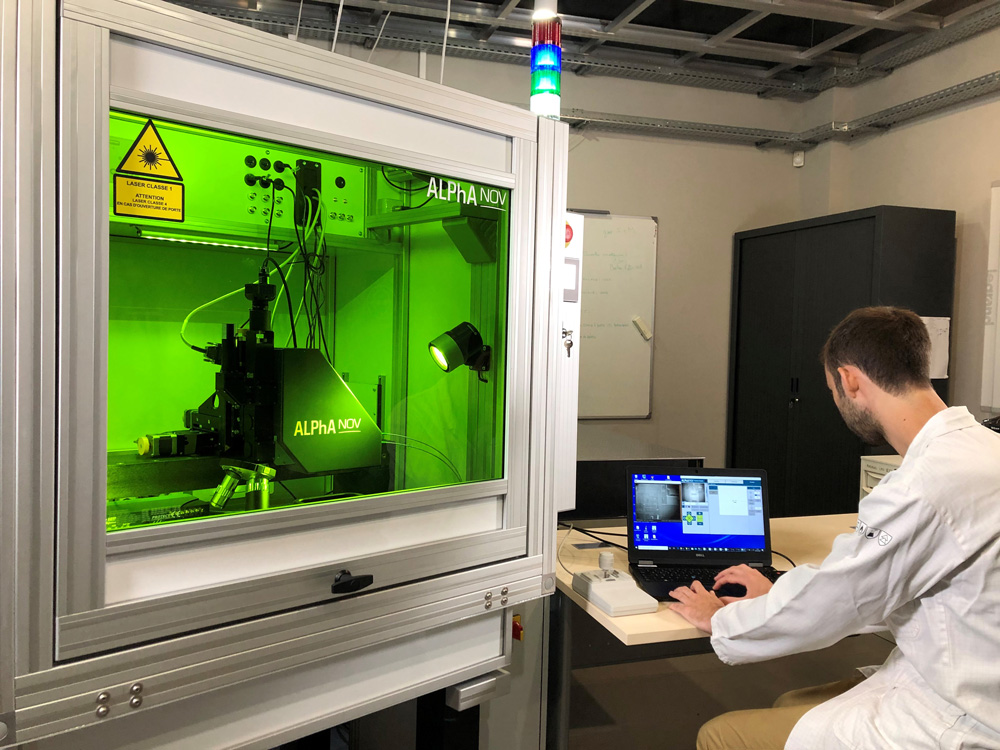
Options
- CE-certified laser safety enclosure
- Photoemission kit
- Laser injection for thermal laser stimulation
- esDynamic software platform from eShard
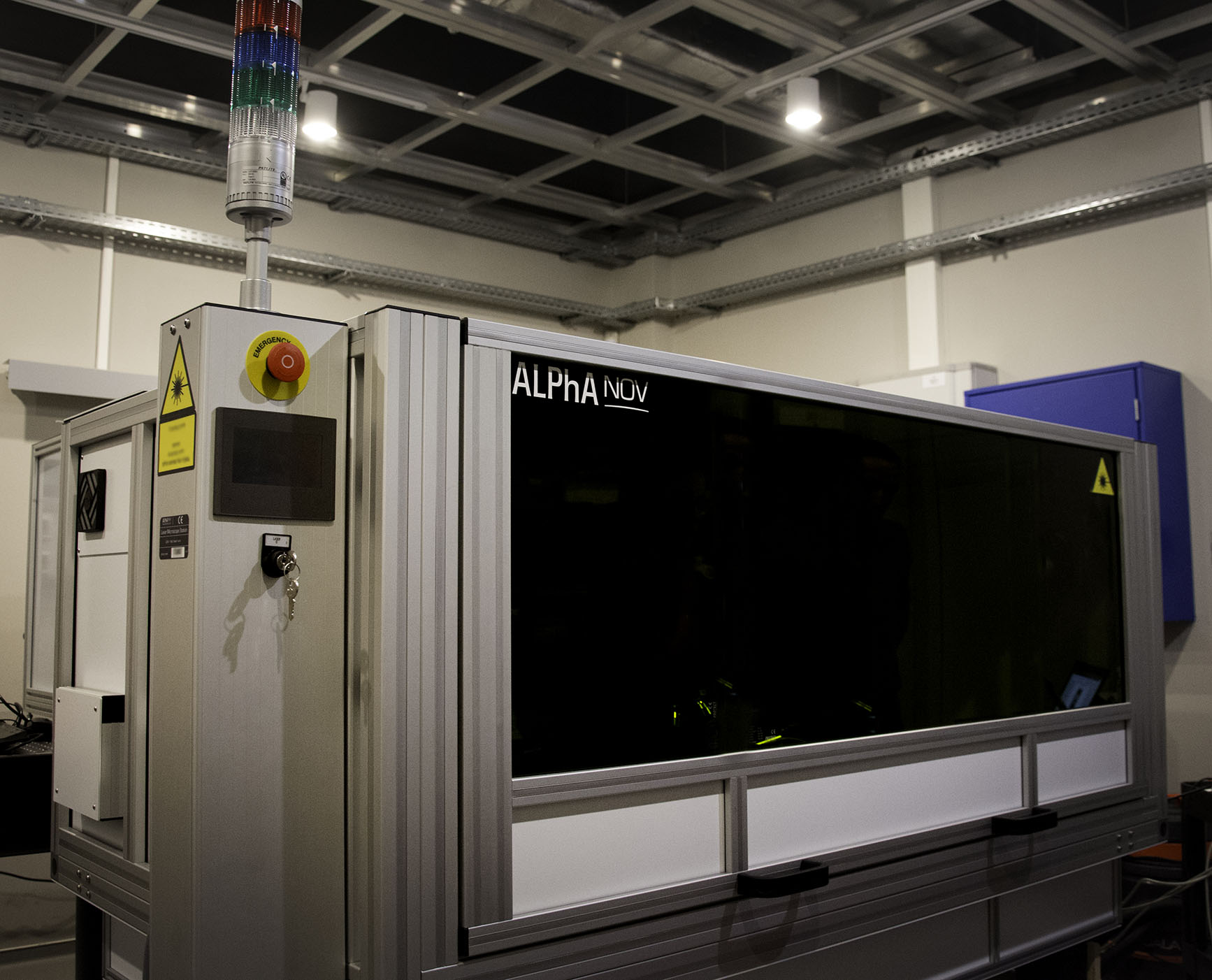

Associated products or services
-
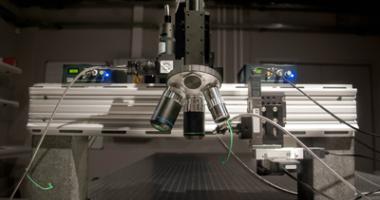
Single laser fault injection microscope - S-LMS
The S-LMS microscope station for laser fault injection is a high-precision platform for security evaluation of integrated circuits. It allows you to focus the laser spot and scan the sample through the back side in order to evaluate the security levels of the electronic components. -
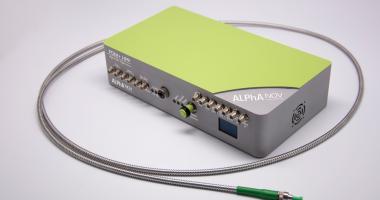
PDM laser sources - Pulse-on-demand Modules
PDM laser sources are specially designed for security evaluation of integrated circuits. Reliable and robust, these laser sources allow you to generate pulses on demand of less than 1 nanosecond, up to continuous with a timing precision of 8 ps and a spot size of 1 µm. -
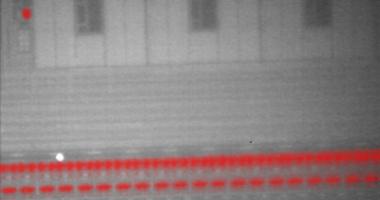
Photoemission optical bench
When an integrated circuit is in operation, the zones requested by the routine naturally emit infrared photons via the rear panel. ALPhANOV’s photoemission optical bench allows you to capture and visualise these photonic emissions in order to obtain a precise view of the circuit activity. -
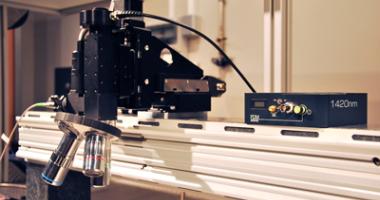
Thermal Laser Stimulation - TLS
The thermal laser stimulation bench is an optical microscope which enables to focus with precision, a PDM+ laser source (Pulse-on-Demand Module) at 1420 nm. Used through the back side of electronic components, the laser beam warms the sample locally and allows to extract and read out data in a memory according to the current consumption of the transistors. -
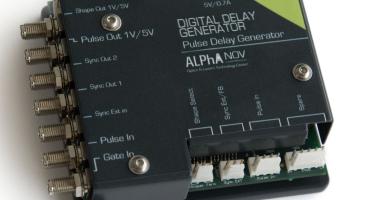
Tombak: Pulse Delay Generator
This pulse delay generator generates high frequency pulses, digital delays and bursts. It is an ideal synchronization and timing control instrument for electronics and lasers.